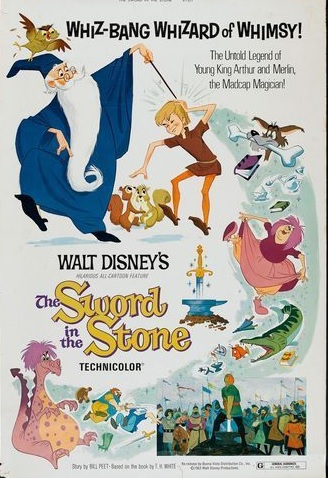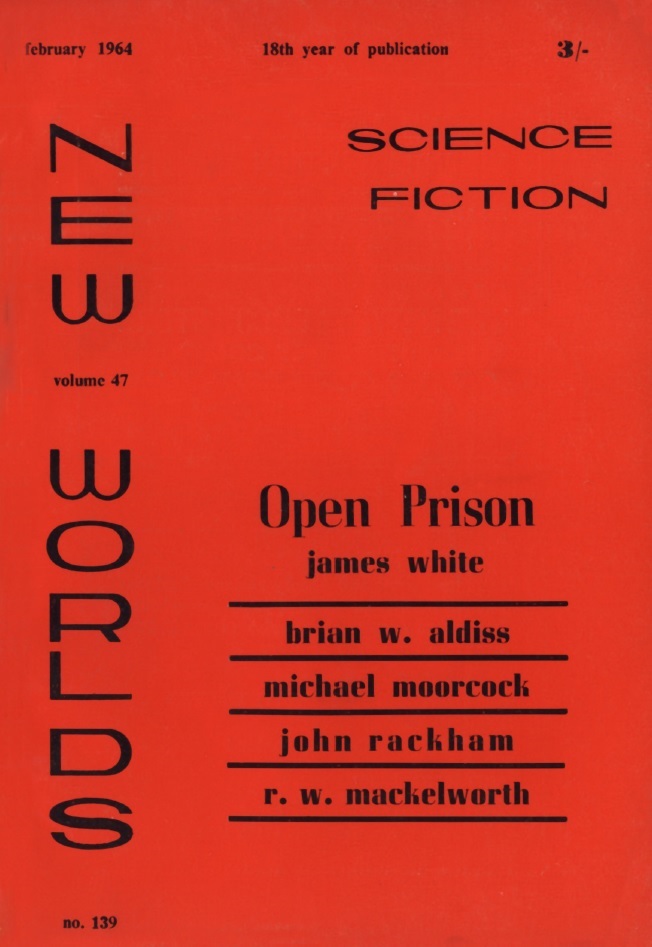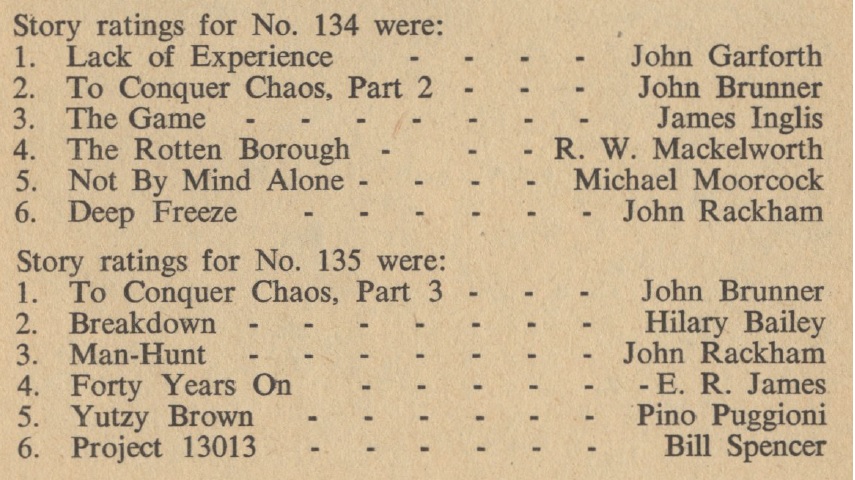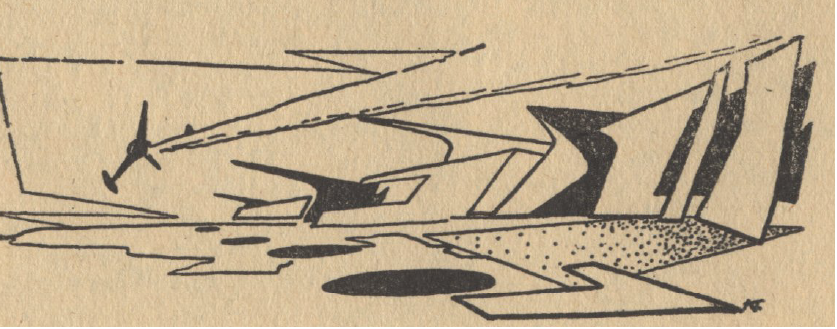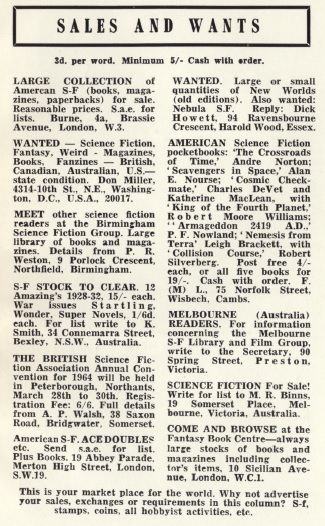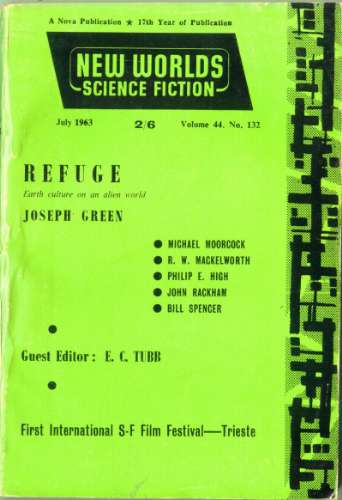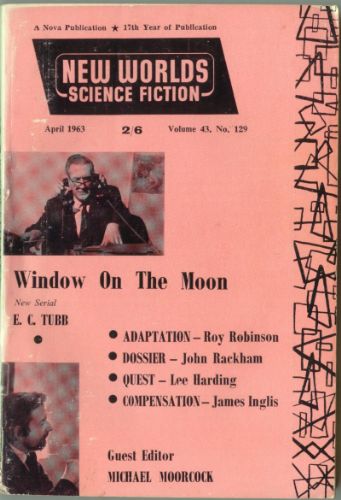
by Mark Yon
Scenes from England
Hello again!
I hope Christmas for you was a good one. Christmas was good to me in that I received a copy of Charles L. Harness’s The Paradox Men. So far I’m really enjoying it as an over the top Space Opera. Why has it taken so long to be published here in Britain, though?
More good cheer: this month’s New Worlds editorial begins with a loud “Hurrah!”, announcing that both New Worlds and Science Fantasy are to return to monthly publication in 1965.
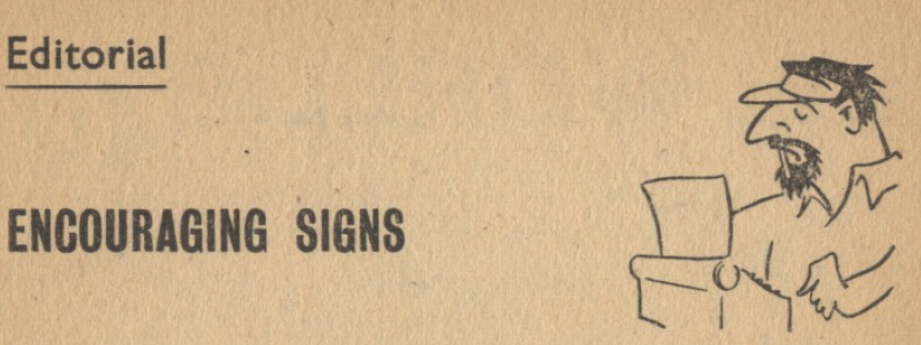
This is wonderful news for both New Worlds and Science Fantasy. Clearly the increased readership has paid dividends on both counts. Let’s hope this continues. More on this particular issue later.
News-wise, politics has been on its Christmas break. So not a lot to particularly report there.
The contest for the Number 1 single slot is always competitive, but Brits have a particular obsession for the Christmas Number 1 single. This year that enviable position was held by (unsurprisingly) The Beatles with another catchy tune – I Feel Fine.

Music-wise, most of the year’s reviews seem to have focused on the global domination of our Fab Four as they travel the world, permanently surrounded by screaming teenagers. Not only having the British Christmas single, they will also be pleased to know that their single Can’t Buy Me Love, is the single to have spent longest as Number 1 for a majestic 3 weeks, back in March and April. More seriously, it really has been their year and I can see 1965 carrying on in much the same way.
At the cinema I am pleased to write that I enjoyed our Christmas movie, Father Goose, starring Cary Grant. A rather comedic role with a feel-good family tone. It’s not Cary's best, but it was pleasant enough. And in the middle of Winter, pleasantly tropical.
But be warned – My Fair Lady is due at the end of January. I know that you’ve had to endure this film already in the US – all 170 minutes of it – and the reviews have been quite good, but I still haven’t managed to come up with an excuse of sufficient importance to avoid it. Can I claim that I’m much too busy reporting to you to go? I doubt it, sadly. I may have to bow to the inevitable.
On a more positive note, on the television I am enjoying the latest Doctor Who, which seems to be regaining its confidence after a couple of so-so episodes, and hopefully that upswing should continue in 1965. Jessica’s already mentioned this, but the latest Dalek episodes are in my opinion the most enjoyable series yet.
The Issue At Hand
 cover by Robert J. Tilley
cover by Robert J. Tilley
This month’s cover shows that, as hinted at last issue, circles are ‘in’.
Personally, I still yearn for art with some detail, but am resigned to the current vogue, whilst at least appreciating that, despite being crude and simple, it’s still not as bad as Carnell’s last issues.
The Editorial, as shown earlier, is pleasingly upbeat. It is akin to a state of the nation address, showing us where we are in the current state of things artistic and literary. There’s mention of a new critical magazine edited by Messrs Aldiss and Harrison, which sounds intriguing.
To the stories themselves.
The Power of Y (part 1), by Arthur Sellings
The triumphant tone hangs over to this first part of a serial by Arthur Sellings, who is highlighted in the Editorial for producing “stories of a consistently high standard since he began writing.” To me this does sound a little like faint praise, though I must admit that the serial is one of the most enjoyable I’ve read for a while. Max Afford is an art dealer in a world where Transdimensional Multiplying, or Plying, allows an object such as a painting or a car to be borrowed from multiple universes. You want the original Mona Lisa? You can borrow it and have it in your home, for a price. There are limits, however. It is a very expensive process and an object can only be plied to a maximum of twenty copies. Plying living objects, such as a beloved pet, is seen as impossible.
This is an intriguing concept, but one that becomes more complicated when Max suddenly finds that he can tell the difference between plied objects and the original simply by touching them. The story then ends on a cliff-hanger involving the President of the Federated States of Europe.
It’s all written in a deceptively chatty style that Heinlein is so good at, a combination of charming bonhomie and sly digs at both the establishment and the world of art – although Sellings is clearly an author the editor Mike Moorcock prefers. Nevertheless, it read well and was entertaining, and most of all I’m intrigued to see where this one goes. The most negative thing I could find about it was the awfully childish art throughout the prose! A great start. 4 out of 5.

Childish art? I rest my case, m'lud. But perhaps it's intentional irony in a story about art…
The Sailor in the Western Stars , by Bob Parkinson
A debut author. You can tell from the artwork at the beginning that this is a story retold as if it were ancient myth, a folk-tale rather like a science-fictional Arabian Nights. I liked the romantic tone of this, that the main character is some sort of wandering pirate-trader destined to sail across space. It’s similar to Bertram Chandler’s Rim stories or even Poul Anderson’s David Falkayn /Star Trader stories, but deliberately more lyrical and enigmatic. Behind the poetic sheen there’s not a lot going on, admittedly, but I remembered it more than many stories. File under “Interesting”. It’s nicely done, but fairly inconsequential. 4 out of 5.
Tunnel of Love, by Joseph Green
And here’s the return of Moorcock’s friend, Joseph Green, after Single Combat in the July-August 1964 issue. The title suggests a cheap fairground ride, but it is actually an ethnologic study with a creepy twist. Two young graduates, realising a way to make money, attempt to make a movie on Procyon Nine, a planet known for its beautiful people but whose strict moral code is that visitors do not seduce them. The twist is that the would-be suitors of the girls have, as a rite of passage, to crawl through an interdimensional portal that connects Procyon Nine to the nuptial bed! This is not quite as outré as it sounds and there’s a big old twist at the end. I found it better than I thought it was going to be, an adventure story that also made me think of it as a raunchier take on Chad Oliver’s themes. 3 out of 5.
There’s A Starman in Ward 7, by David Rome
And now something a bit darker. Very pleased to see the return of this writer, last seen in the August 1963 of New Worlds. As far as the New Wave type stories go, this is actually one I liked.
It is the story of a psychotic murderer who is locked up in an insane asylum and who claims to have been in a ward with a new inmate – a Starman from Alpha Centauri. It’s written in a deliberately disjointed and irrational manner and is filled with those stylistic typing patterns and fragmented streams of consciousness that you may remember in Alfred Bester’s work. It is something that the New Wavers should love – and for a change, I also liked. Unlike most stories that try this technique I found that David’s story doesn’t lose its purpose or its narrative thread along the way. 4 out of 5.
Election Campaign, by Thom Keyes
Oh-oh. Here’s the return of Thom Keyes, whose last story, Period of Gestation, was in the September – October 1964 issue of Science Fantasy. I really didn’t like it. But actually, Election Campaign is a more straightforward tale than I thought it was going to be. General Aldheyer is sent on a mission to secure the votes for the General Dynamics Party of an obscure and out of the way colony. Unfortunately, the brain-in-a-box space pilot malfunctions on the way and the only solution is to create a replacement pilot. Consequently, Aldheyer’s brain is transplanted into the ship. There’s a lengthy description of the surgical process and the story ends with the spaceship’s arrival on the planet to begin its electoral campaign.
After our recent change of government, this story is perhaps surprisingly topical. Some politicians will do almost anything for power! I must admit that this was more enjoyable than Keyes’ last story, but the purpose of it seems a little pointless, other than to make the reader question what makes a machine human and vice versa. Anne McCaffrey’s done all this before, of course. 3 out of 5.
Space Drive, by Gordon Walters
We then get a lengthy chunk of the magazine concerned with reviews and non-fiction. Gordon Walters is a writer new to me, although you may know him better as George Locke. This is an article that discusses the different means of travelling around science-fictional space that have been used by authors in the past. It’s a nice discussion that sums up concepts from a range of books and authors.
Books: Fancy and Imagination, by Michael Moorcock, James Colvin and Langdon Jones
As expected from previous comments there’s reviews of Charles L. Harness’s The Paradox Men and Brian Aldiss’s Greybeard. Michael Moorcock likes both.

The bulk of the reviews from Colvin (aka Moorcock, of course!) and Langdon Jones pick up a rag-bag of books. Honorary mentions go to Andre Norton’s Judgement on Janus, which is OK, James Blish’s A Life for the Stars, which is ‘better’ and Alan E. Nourse’s Scavengers in Space (good for children.) On the other hand, Poul Anderson’s Time and Stars and Damon Knight’s Beyond the Barrier both get a mauling. The second New Writings in SF anthology is ‘disappointing’, which probably means that I will like it. The Best from F & SF is above average yet summarised as overpraised, but A Decade of Fantasy and Science Fiction, with stories from the magazine originally published between 1949-59, is 'excellent'.
There’s also the usual endorsement of J G Ballard, this time for the US publication of The Burning World, and praise for Anthony Burgess’s 'powerful and horrifying' A Clockwork Orange, which is one of the most unusual books I’ve recently come across.
Langdon Jones then positively reviews Arthur Sellings’ The Uncensored Man and C. M. Kornbluth’s The Syndic.
The Letters pages show that I Remember, Anita, published in the September-October 1964 issue, seems to have generated some controversy. There’s also a letter complaining about the return of illustrations, which shows that people are never satisfied.
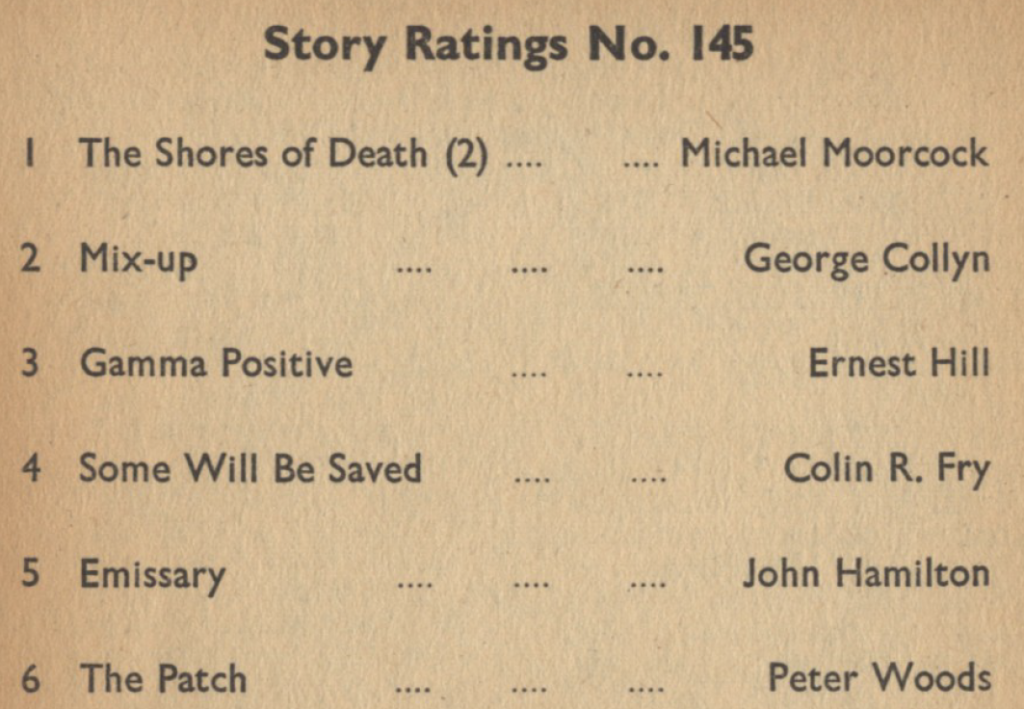
Summing up
It may be the season, but I’m pleased to say that this issue of New Worlds was one I enjoyed more than I didn’t. I enjoyed the range of stories, but most of all I liked the actual stories, which were not anything particularly radical yet made me feel like it was worthwhile paying my money to read them. Last month I said that I was enjoying Science Fantasy more. If this is New Worlds’s response, then the differences between the two magazines might not be as much as I had thought. Science Fantasy may have a fight on its hands for my attention!
And with this in mind, next month I should have two magazines to review – New Worlds and Science Fantasy! It’ll be interesting to see which one turns up first.
All the very best to you and yours for 1965.

[Come join us at Portal 55, Galactic Journey's real-time lounge! Talk about your favorite SFF, chat with the Traveler and co., relax, sit a spell…]

![[December 29, 1964] Be Ye All of Good Cheer… <i>New Worlds, January 1965</i>](https://galacticjourney.org/wp-content/uploads/2019/12/New-Worlds-Jan-65-522x372.png)

![[October 28, 1964] We Live In Hope (November/December 1964 <i>New Worlds</i>)](https://galacticjourney.org/wp-content/uploads/2019/10/NW145a-672x372.jpg)


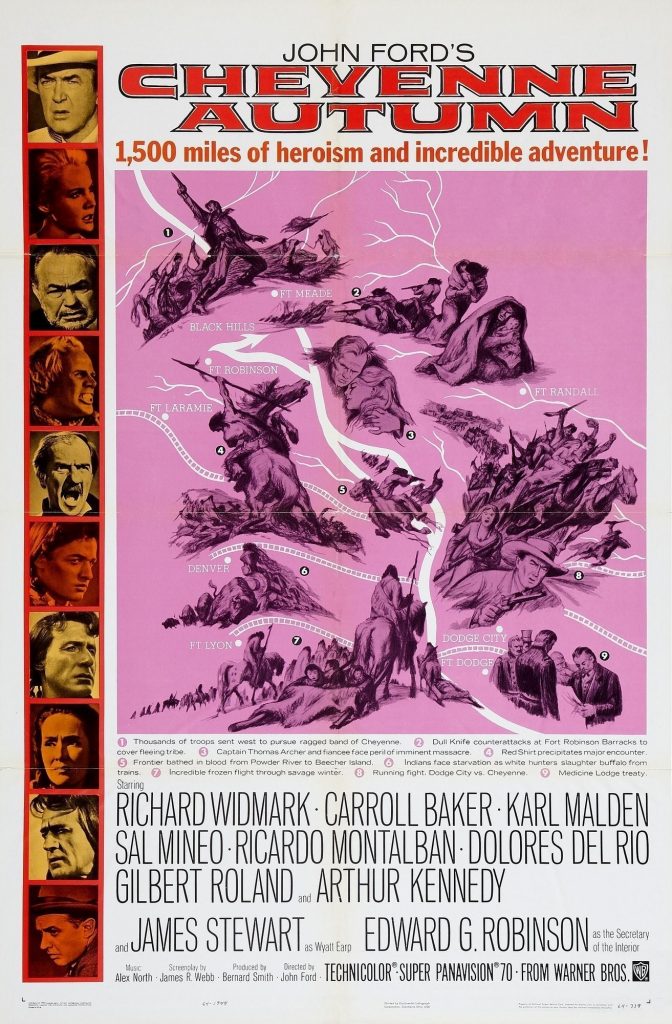



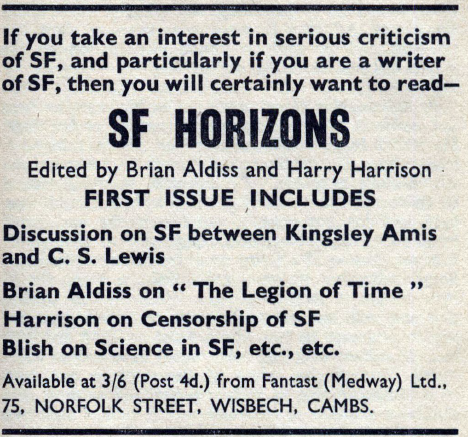
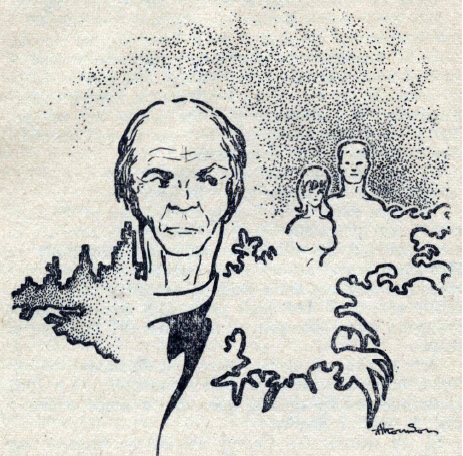
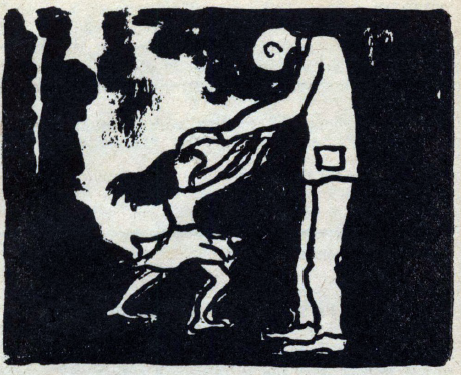

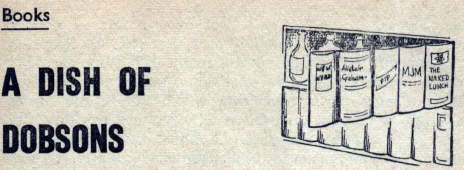
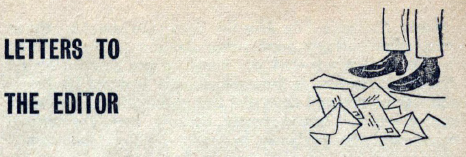

![[August 27, 1964] Change..? ( <i>New Worlds</i>, September-October 1964)](https://galacticjourney.org/wp-content/uploads/2019/08/640827newworlds-1-553x372.jpg)
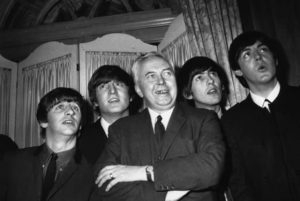



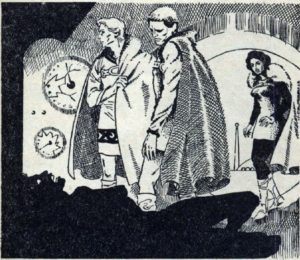

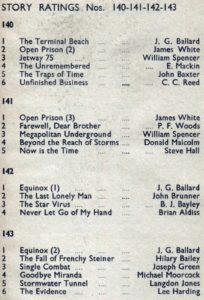

![[April 22, 1964] World Affairs (May 1964 <i>Fantastic</i>)](https://galacticjourney.org/wp-content/uploads/2019/04/640422cover-601x372.jpg)
















![[January 28, 1964] Beatles, Prisons and Doctors ( <i>New Worlds</i>, February 1964)](https://galacticjourney.org/wp-content/uploads/2019/01/640128cover-652x372.jpg)

